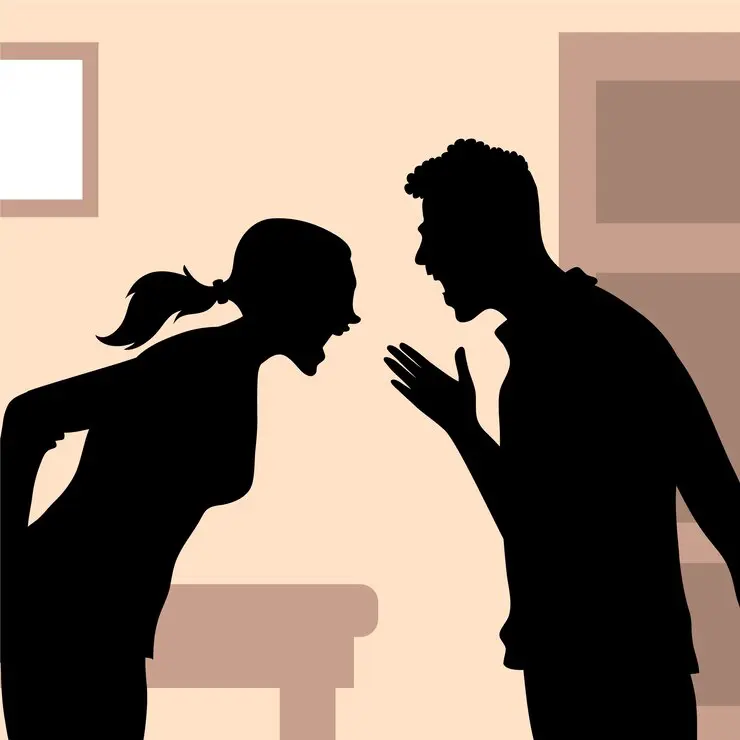admin
Domestic Violence and Mental Health: What’s the Connection?
Domestic violence is an incredibly grave and alarming issue that not only seriously impacts an individual’s physical well-being but has profound and long-lasting implications for their mental health. The harmful effects of domestic violence on mental well-being cannot be overstated. It can lead to various emotional and psychological consequences, such as anxiety, depression, post-traumatic stress disorder (PTSD), and even suicidal thoughts. The mental scars left by domestic violence often persist long after the physical wounds have healed, making it crucial to address this multifaceted phenomenon with utmost urgency and empathy.


Understanding Domestic Violence
Domestic violence, it’s this recurring pattern of abusive behavior within a relationship where one partner tries to establish power and control over the other. It’s truly distressing because it can show up in different forms, not just physical violence. We’re talking about emotional, psychological, and even financial abuse, which creates a climate of fear and dependence for the survivor.
Types of Domestic Violence
1. Physical Abuse
Physical abuse, a distressing form of mistreatment, involves acts of violence that intentionally inflict bodily harm. This can include forceful hitting, slapping, or pushing – actions that can cause significant physical and emotional pain. The aftermath of physical abuse often leaves visible scars and can result in severe injuries, worsening the long-lasting trauma experienced by survivors.
2. Emotional Abuse
Emotional abuse, a subtle yet equally damaging form of mistreatment, can be really hard to spot. It includes all sorts of harmful behaviours like manipulation, demeaning insults, and intimidating threats. These sneaky actions, which come in different shapes and sizes, slowly chip away at a person’s self-esteem and emotional well-being, leaving deep scars on their mental health.
The constant belittlement and humiliation mess with their sense of self-worth and make them doubt every aspect of who they are. Eventually, the victim might start feeling anxious, and depressed, and find it really hard to trust themselves and others.
Emotional abuse has this way of causing deep wounds on one’s self-esteem and self-worth. It’s like being trapped in this dark place of self-doubt and despair, where you constantly question if you really deserve love, kindness, and respect.
3. Financial Abuse
Financial abuse is a form of manipulation whereby one partner exerts control over the finances, leaving the other vulnerable and financially dependent, often devoid of access to money or resources necessary for their well-being and independence. This type of abuse can encompass various tactics, such as restricting access to bank accounts, imposing strict budgets, or even preventing employment opportunities. It is a damaging and coercive behaviour that can have long-lasting effects on the victim’s financial security and overall well-being.
How Can You Break the Cycle?
Breaking free from the cycle of domestic violence can be an incredibly challenging journey, but it is absolutely vital for one’s overall well-being and safety. It requires immense strength, courage, and support from loved ones or professionals who can provide guidance and resources.
Taking the first step towards freedom involves recognizing the signs of abuse, developing an escape plan, seeking legal protection if necessary, and seeking therapy, counselling, or divorce mediation to rebuild a sense of self-worth and healing.
Domestic violence and mental health are intricately connected; the devastating impact of abuse often leaves lasting scars on individuals. No person should ever have to endure such physical and emotional suffering. Remember, you are not alone, and there are people who genuinely care and want to help you through this difficult time. You deserve to live a life free from violence and fear.
P.S. If you want to talk one-on-one, I also offer free consultations to provide you with expert guidance and support during tying time. If you’re interested, use this link to tell me your story!
If you’ve decided to conclude the chapter of your relationship, mediation is arguably the most effective and healthy way to do it. And guess what? We’re having a special Divorce Mediation Workshop for Women on November 2nd and our monthly Open Space Divorce Workshop on November 14th, focusing on negating divorce and relationship conflict with confidence.
FAQs
Is domestic violence always physical?
No, domestic violence can manifest in various forms, including emotional, financial, and psychological abuse, alongside physical abuse.
Can men also be victims of domestic violence?
Yes, domestic violence can affect anyone, regardless of gender. Men can be victims too, and they should seek help if they are in an abusive relationship.
How can I support a friend or family member experiencing domestic violence?
Offer your support and encourage them to seek help. Be patient and non-judgmental, as they may be hesitant to come forward.
Are there resources available for domestic violence survivors?
Yes, many organizations and hotlines provide assistance to survivors. Open Space Mediation also provides divorce mediation consultancy and a safe space for victims of domestic abuse.
Can therapy help survivors of domestic violence recover from mental health issues?
Yes, therapy and counseling can be immensely beneficial in helping survivors heal from the emotional scars of domestic violence. It provides a safe space to process trauma and regain mental well-being.